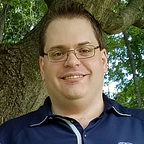Where There Is Denial, There Is Trauma, Part 2
At the end of April 2023, I found out about a young autistic woman in her mid-20s with post-traumatic stress disorder (PTSD). What got my attention was the fact that the late timing of her autism diagnosis caused the PTSD. My counselor then unexpectedly screened me for it and the result turned out to be favorable. If a late autism diagnosis can be traumatic enough to cause PTSD at her age, mine may be traumatic, too.
As a suicide attempt survivor, I know that denial of trauma is a serious issue. There is no reference for an autistic person to process their denial of a late diagnosis. So, I will use my experience with suicide to guide me through mine. It will not be easy. I am already having difficulty with the writing. If my instincts are correct, though, what I am about to reveal may substantiate the truth of trauma and a late diagnosis. Starting with me.
I have not been honest about my initial reaction to my autism diagnosis because I could not remember enough to be sure. Nor do I want to. The memories feel like they were blocked by a sensation of being overwhelmed. One that I can tell I do not want to remember. Now, I can at least admit I am in denial and try to process it. While I was working on this article, it took a lot of effort before the details finally surfaced.
From 2017 to 2019, I was an active volunteer in the local mental health community. I observed one thing that shaped my first impression. There was recognition and support for autism, but only for ages under 21. A mental health program coordinator I trusted confirmed it. My counselor and I also discussed our early expectations of how autism would affect my life. I must have repressed my helplessness without realizing it.
During these first few weeks, I also suspected that my difficulty with dating was caused by autism. Then, in February 2020, one of the founding members of the autism support group I was attending shared some formal research. It indicated that only 1 in 3 autistic people found companionship. I know that I suppressed my despair because finding companionship already felt unattainable. It was too depressing to cope with.
Inconsistent research also made autism far too confusing for me to understand. So, I was analytical about it. I knew of some traits but did not expect anything to change soon enough. The more I learned, the more bleak my outlook on life became. Then, I did something that I knew, as a suicide survivor, I should never do. I put on a smiley face. If autism over 21 was being ignored, who would help soon enough for it to matter?
In May 2022, the same founding member of the support group shared the NIMH autism overview. Unexpectedly, in a matter of weeks, everything started to make sense. The overview said that autism was neurological. I was analytical about this, too. I deduced that if my thinking was neurologically influenced by autism, all of my behavior should be affected as well. Not just a scattered list of traits.
Then, in mid-July, when I finished the first draft of my Autism Over 21 presentation, the writing put impactful information in one place and helped me see the truth. Everything I had come to know and trust about my life was a lie. At first, I almost refused to believe it was true. I was seeing pieces of developmental problems that I had no idea were all stemming from one source: undiagnosed or misunderstood autistic behavior. I was stunned.
In summary, after I received my diagnosis in 2019, I knew there was no recognition that people over 21 were actually autistic. No one was going to help as soon as I believed it was needed. I felt hopeless. When I discovered that 20 years of dating had been ruined, my despair was too much. I had no choice but to suppress it. When I realized the autistic truth about everything in July 2022, I went absolutely numb for an entire day.
An autism diagnosis as late as age 37 is traumatic because it is an abrupt change in our developed perception of our entire life. Once I recovered from the shock of that day, I was unprepared for how I saw mine. My eyes had truly been opened to what autistic life was actually like. It shook me to my core. The reality of autistic life was more perilous than I was able to admit. Without denial, now I can.
And it involves a whole new layer of trauma…
#EndAutismDenial
